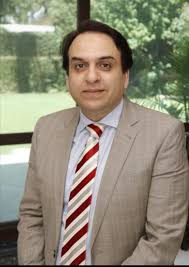WNAM REPORT: Pakistan Thursday called for “systematic” reform of the international financial architecture that would ensure that low-income countries vulnerable to climate impacts receive adequate help from richer nations.
“Poverty and hunger are on the rise and developing countries are suffering from the triple crises of food, fuel and finance,” Senator Mohammad Abdul Qadir told the Annual Parliamentary Hearing, a joint initiative between the President of the United Nations General Assembly (UNGA) and the Inter-Parliamentary Union (IPU).
“The adverse impacts of climate change are compounding these difficulties,” he said, warning that the 2030 Development Agenda is in “peril”.
Senator Qadir said that countries the world over have integrated the anti-poverty Sustainable Development Goals into their national development plans, highlighting that Pakistan was the first to adopt the SDGs as its own national development agenda through a National Assembly resolution in 2016.
“Thus”, he said, “the issue is not of political will, or lack of national ownership, rather, it is of accountability, transparency and lack of sufficient resources.”
In this regard, the Pakistani delegate said that Parliaments can bridge some of these deficits by advocating for legislative policies that advance the SDGs, ensuring evidence-based and transparent budget allocations; reviewing legislation, and providing accountability for government-led policy implementation.
But, he said Parliamentary action alone cannot bridge the SDG financing gap.
“Most developing countries are investing more in serving their debts rather than investing in health, education, and economic growth,” Senator Qadir pointed out.
The IPU-UN hearing serves as a platform form parliamentarians to contribute to global policy debates and provide their perspectives on international issues.
A six-member parliamentary delegation, led by Senator Farooq H. Naik, is representing Pakistan at the annual Hearing. The delegation is composed of Senators and members of National Assembly.


